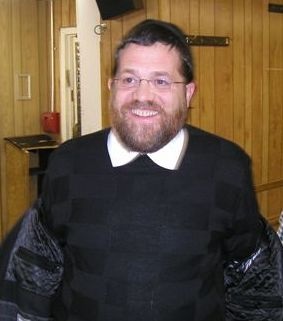 Passover, the holiday of Jewish liberation and freedom from Egypt, took place about two months ago. But Jacob Ostreicher has given up hope of leaving Bolivia, where he has been under arrest on what actor Sean Penn called “unevidenced prosecution.”
Passover, the holiday of Jewish liberation and freedom from Egypt, took place about two months ago. But Jacob Ostreicher has given up hope of leaving Bolivia, where he has been under arrest on what actor Sean Penn called “unevidenced prosecution.”
Ostreicher, a Chareidi Jew, is an entrepreneur and flooring contractor from New York. In 2008, with the American economy still tanked, a group of investors, including Ostreicher, invested $27 million in a rice farming project in Bolivia. When the group became suspicious that their representative there, Claudia Liliana Rodriguez Espitia, was cheating them, they dispatched Ostreicher to investigate the situation. Ostreicher then pursued criminal charges against Rodriguez. In June 2011, while he was still in Bolivia, the authorities arrested him on suspicion of money laundering and criminal organization. According to the New York Times, Bolivian Minister of the Interior Carlos Romero said that Ostreicher is instead being held for “his involvement in a land deal with a convicted Brazilian drug trafficker,” from whom Rodriguez bought a parcel of land for the investment group and with whom she became romantically involved. A judge ordered him released in Sept. 2011, reversed his decision a week later and was soon promoted and removed from the case. A second judge excused himself from the case, and since no replacement judge was assigned, the case is still pending. Rodriguez, who is from Colombia, was arrested as well and in January was also sentenced to house arrest for illegal activities and drug trafficking.
In November 2012, Bolivian Minister of the Interior Carlos Romero announced the arrests of six individuals connected with and in charge of the Ostreicher case for creating an extortion ring against Ostreicher. Among them were Fernando Rivera Tardio, the Interior Ministry’s director of financial affairs, and the original judge on the case, under suspicion of crimes such as extortion and illegal enrichment. Rivera had attended most of Ostreicher’s hearings and openly threatened them with arrest if they released Ostreicher. He has since apologized, claiming that he was “only following orders from my superiors,” although he has not provided proof of such orders. Six more were subsequently arrested in December and one official, Ariel Rocha, fled the country; more have since been arrested. Ostreicher has said that several officials tried to extort $50,000 from him in exchange for his freedom. The government also seized 18,000 metric tons (nearly 40 million pounds) of rice from him — worth over $101 million — in addition to $27 million worth of assets.
Since, under Bolivian law, a suspect may be imprisoned without charge for up to 18 months during the investigative phase of a case, Ostreicher was called to a hearing on December 11, 2012. A judge ordered the case back to the lower courts. He was released on bail to house arrest a week later, which he is still under, after actor Sean Penn personally involved himself and pressured the courts.
Because Ostreicher has been held without charges or trial for nearly two years, was held in the prisoner-controlled Palmasola Prison, is suffering from illness (likely Parkinson’s) and has refused to take medication because he fears it has expired or is unsafe, U.S. Senator Christopher Smith charged Bolivia with violating Ostreicher’s basic human rights. Romero denied the allegations (translated by the writer from the original Spanish), telling El Deber this past Thursday that “[Smith] has neither a single judicial basis nor logical basis to say that there was a violation of human rights. We are a very mindful country in respect to human rights…” Ha’Am tried contacting the Bolivian consulate in Los Angeles but it did not immediately respond to calls and both of its numbers listed had full voicemail boxes.
Ostreicher has maintained his innocence and even that “the prosecutors know I am 100 percent innocent.” A rally was organized last year by New York State Assemblyman Dov Hikind outside of the Bolivian Mission, although it does not seem to have accomplished much. Smith has been lobbying hard for the U.S. government to pressure Bolivia, as has House Representative Jerrold Nadler, but since the U.S. ambassador to Bolivia was expelled in 2008, the government claims there is little it can do. Bolivian president Evo Morales has been strongly criticized for the corruption in the government regarding the extortion ring, as well as the Ostreicher case, but Morales maintains that corruption was worse before he took office in 2006 (although other scandals have rocked his administration). He recently met with Ostreicher, who was hopeful that the president would improve his situation, although Penn has said that despite any good intentions Morales may have, the judiciary in Bolivia is too corrupt for him to do anything. Instead, Penn has been urging the Dakar Rally motorcycle race to boycott Bolivia, which would make it lose “hundreds of millions of dollars” in revenue and publicity.
Ostreicher is married with five children and eleven grandchildren. His wife, Miriam Ungar, visited him in prison in 2012 but said she was detained for nearly three hours and is now afraid to go back. They communicate by phone instead. Ungar said on Wednesday that neither she nor her husband believe that he will be released because Bolivian officials “make up reasons” to detain him. But, she said, “I want him to come home.”

